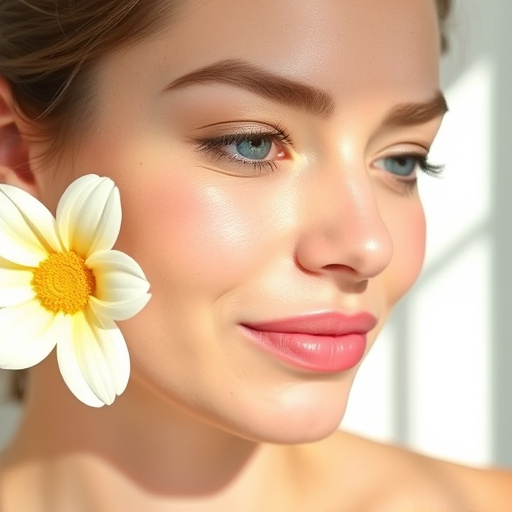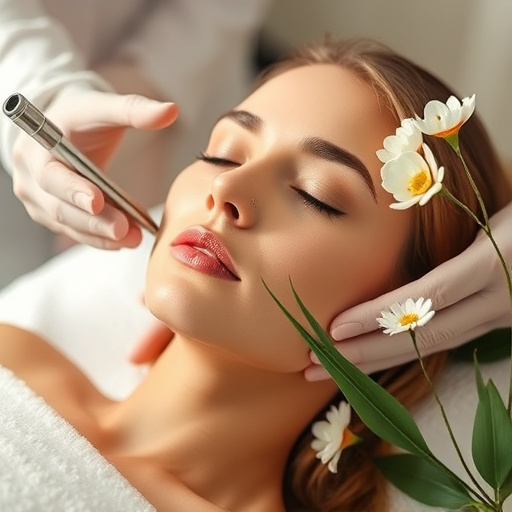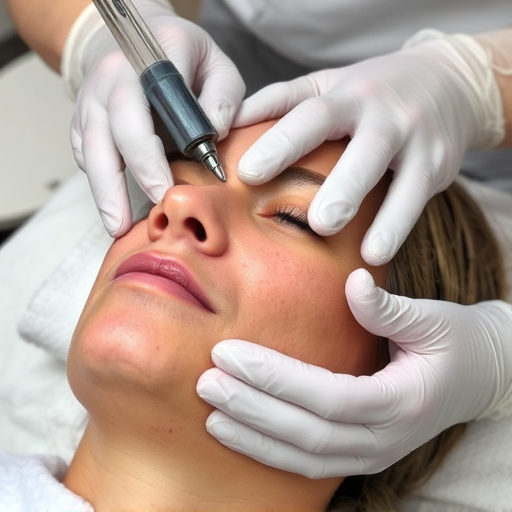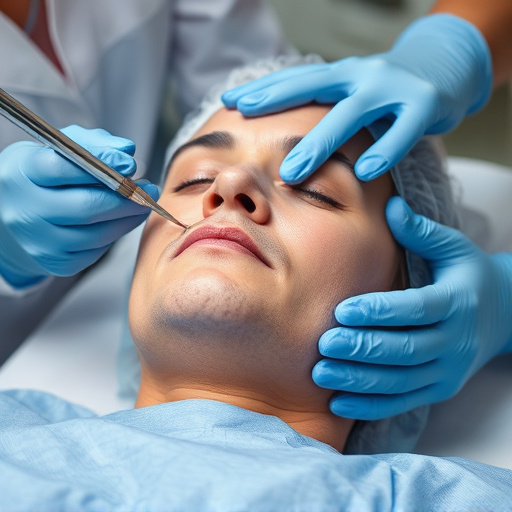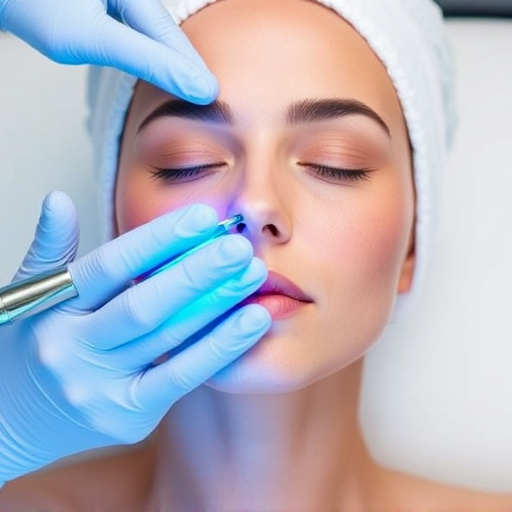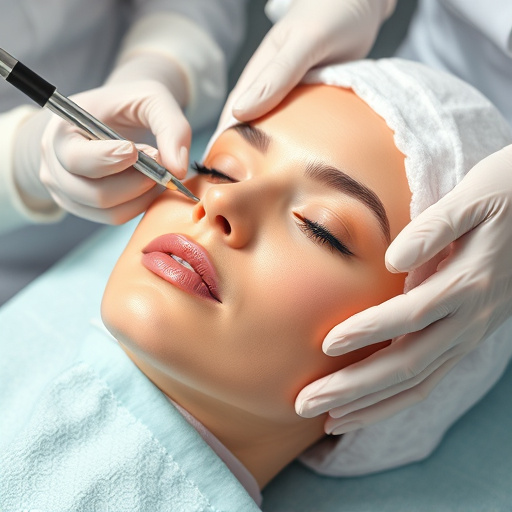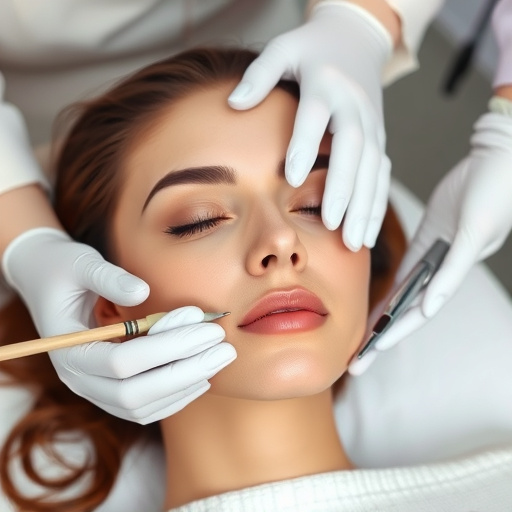Cystic acne, caused by blocked follicles and influenced by hormones, genetics, and environment, requires a comprehensive treatment approach. This includes medical spa treatments like topical medications, antibiotics, isotretinoin, and skin tightening to reduce inflammation and scarring. Lifestyle adjustments such as anti-inflammatory diets, hydration, exercise, sleep, stress reduction, and UV protection are crucial complements to conventional cystic acne treatment strategies, promoting clear, healthy skin over time.
Cystic acne, characterized by painful, deep-seated blemishes, requires a dedicated long-term strategy for effective management. This article delves into understanding the root causes and triggers of this severe skin condition, offering insights into comprehensive treatment strategies that go beyond topical solutions. We explore lifestyle adjustments and holistic approaches to foster skin health, ensuring lasting results in the battle against cystic acne. Discover practical tips and expert advice for a clear, healthy complexion.
- Understanding Cystic Acne: Causes and Triggers
- Long-Term Treatment Strategies: A Comprehensive Approach
- Lifestyle Changes: Supporting Skin Health Beyond Topical Treatments
Understanding Cystic Acne: Causes and Triggers
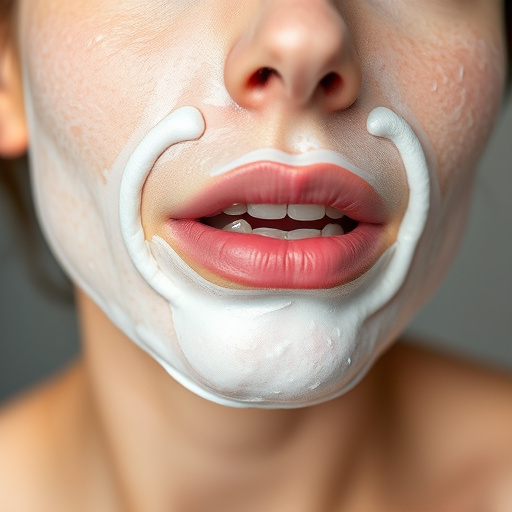
Cystic acne goes beyond the typical surface-level blemishes; it’s a deep-seated inflammation that forms cysts beneath the skin’s surface. Understanding its causes and triggers is key to effective long-term treatment. This severe form of acne develops when hair follicles become blocked, leading to an accumulation of sebum (skin oil) and dead skin cells. The blockage creates a plug that ruptures, causing inflammation and the formation of cysts, which can be painful and result in scarring.
Various factors contribute to the development of cystic acne, including hormonal fluctuations, genetics, certain medications, and environmental conditions. Triggers such as stress, excessive sweating, or even minor skin injuries can exacerbate the condition. Recognizing these causes and triggers is vital for developing a personalized skincare approach at a medical spa that addresses both the symptoms and the root issues, ultimately leading to improved skin health.
Long-Term Treatment Strategies: A Comprehensive Approach
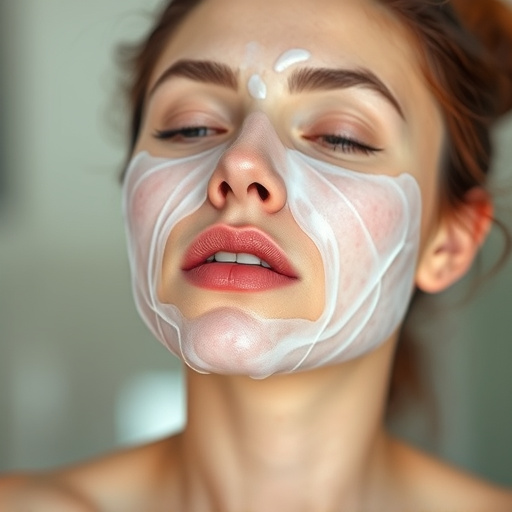
Long-term cystic acne treatment requires a comprehensive approach that goes beyond quick fixes. It involves a combination of medical interventions, lifestyle modifications, and patient education to manage the condition effectively over an extended period. This holistic strategy ensures sustained results and minimizes the risk of scarring or recurrence.
A key component is incorporating both non-surgical treatments and procedures like topical medications, oral antibiotics, and isotretinoin therapy. These options can reduce inflammation, unclog pores, and prevent further damage. Additionally, skin tightening techniques, often explored for their potential to improve acne scars, play a role in refining the skin’s texture. By addressing both active acne and its aftermath, this multi-faceted approach paves the way for clearer, healthier skin in the long run.
Lifestyle Changes: Supporting Skin Health Beyond Topical Treatments
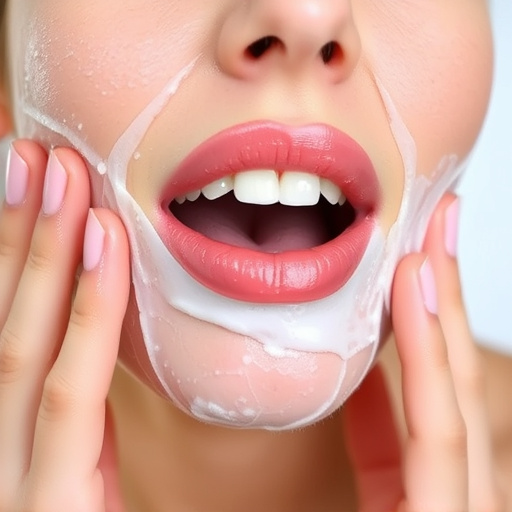
Lifestyle changes are a crucial component of effective long-term cystic acne treatment, complementing topical therapies and non-surgical procedures. Beyond cleaning routines and medication, adopting habits that promote skin health can significantly reduce flare-ups and prevent scarring. Diet plays a key role; incorporating anti-inflammatory foods rich in omega-3 fatty acids and antioxidants can soothe the skin and combat free radicals. Staying hydrated ensures the skin maintains its elasticity, while regular exercise boosts blood circulation, aiding in cell turnover and unclogging pores.
Adequate sleep is essential for skin repair and regeneration, so prioritizing rest allows the body to fight acne from within. Stress management techniques like meditation or yoga can also be beneficial, as high-stress levels are linked to hormonal imbalances that may worsen cystic acne. Furthermore, protecting the skin from harsh sunlight with appropriate UV protection contributes to overall skin health, preventing damage that could lead to post-acne scars and aging concerns.
Cystic acne treatment involves a multifaceted approach combining medical knowledge with lifestyle adjustments. By understanding the causes and triggers, implementing long-term strategies such as topical treatments, oral medications, and regular monitoring, and adopting healthy habits like proper skincare routines and dietary choices, individuals can effectively manage cystic acne. These comprehensive methods not only provide relief but also promote lasting skin health, ensuring clearer, healthier complexions for the long haul.


